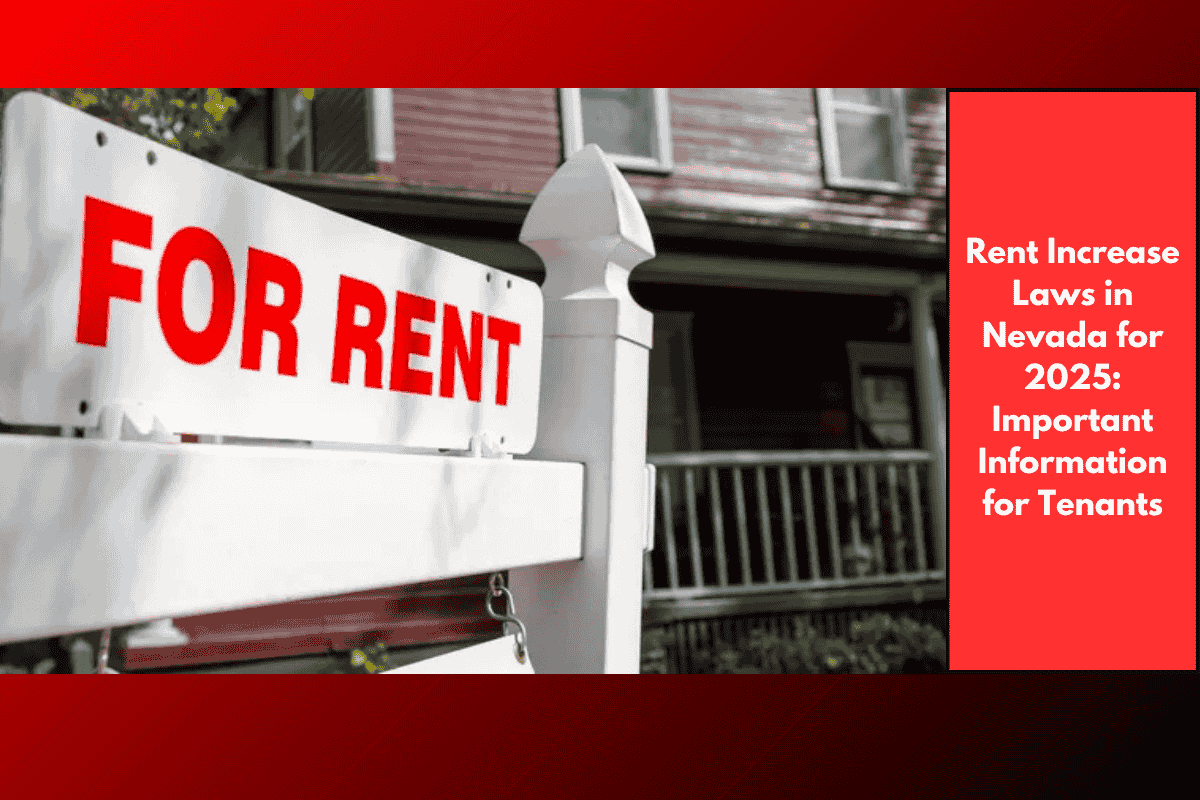If you’re a tenant in Nevada, understanding the state’s rules around rent increases is essential for protecting your rights and ensuring you’re not caught off guard by sudden hikes in your rent. As we head into 2025, several important aspects of Nevada’s rent increase laws will impact renters, so it’s important to stay informed. Here’s what you need to know.
Rent Control in Nevada
Nevada does not have state-wide rent control laws, which means that landlords are generally allowed to increase rent at their discretion. However, there are still regulations in place to prevent sudden or unfair rent increases. The following factors are key when understanding rent increases in the state:
Notice Requirements for Rent Increases
Even though Nevada doesn’t have rent control, landlords must still follow certain rules when raising rent:
For Month-to-Month Tenancies: If you’re renting on a month-to-month basis, the landlord is required to provide at least 45 days’ notice before increasing the rent. This means that if your rent is going to be raised, you must be informed 45 days in advance in writing.
For Fixed-Term Leases: If you have a fixed-term lease (e.g., 12 months), the landlord cannot raise the rent during the term of the lease unless it’s specified in the lease agreement itself. Rent increases can only be made once the lease term ends and if you agree to a new lease or renew the existing one.
Frequency of Rent Increases
Since Nevada does not have statewide rent control laws, there is no limit on how often a landlord can increase rent for month-to-month tenants. However, the landlord must follow the 45-day notice requirement.
For tenants with fixed-term leases, the rent amount agreed upon in the lease cannot be increased until the lease term expires, unless the lease specifies otherwise.
Rent Increase in Relation to Market Conditions
Landlords in Nevada may raise rent based on market conditions, meaning they can increase rent to align with local rental rates. While there is no cap on how high the rent can go, fair practices must still be followed. Rent increases should not be discriminatory or retaliatory in nature.
What to Do if You Think a Rent Increase is Unfair
If you feel that your rent increase is excessive or unfair, there are a few options available:
Negotiate with your landlord: Sometimes, open communication can lead to a solution that works for both parties. You may be able to negotiate a smaller increase or ask for an extended time before the increase takes effect.
File a complaint: If you believe the rent increase violates any local rules (e.g., based on discrimination), you can file a complaint with your local housing authority or legal aid organizations in Nevada.
Legal assistance: If you believe your rights have been violated, seeking legal advice is a good option. Nevada’s legal aid organizations can help you understand whether your rent increase is within legal limits.
Special Considerations for Senior Citizens and Low-Income Tenants
In some cases, seniors and low-income renters may have additional protections. Though Nevada does not have universal rent control, local ordinances in certain cities may offer some protections or rent increase limits for these groups. Check with your local city housing authority or tenant advocacy groups to learn more about any local rules that might apply to you.
Local Ordinances in Nevada Cities
Some cities in Nevada may have local rules or ordinances that offer additional protections or requirements regarding rent increases. While Las Vegas and Reno do not have specific rent control laws, there could be local ordinances that regulate rental practices or offer some protections for tenants in certain situations.
Key Takeaways for Tenants in Nevada:
Notice Period: Rent increases require 45 days’ written notice for month-to-month tenancies. There is no required notice period for fixed-term leases unless the lease specifies otherwise.
No Rent Control: Nevada does not have statewide rent control laws, so landlords can raise rent based on market conditions.
Fixed-Term Leases: Rent increases cannot occur during a fixed-term lease unless stipulated in the lease agreement.
Seek Legal Help if Needed: If you feel a rent increase is unfair or discriminatory, seek advice from legal professionals or tenant advocacy groups.
Understanding Nevada’s rent increase laws is crucial for tenants in 2025. While rent increases are largely tied to market forces, landlords are required to follow specific rules for notice and transparency. If you’re ever in doubt about a rent increase, don’t hesitate to consult with a local housing expert or legal advisor to make sure your rights are protected.
SOURCES
[1] https://www.hemlane.com/resources/nevada-rent-control-laws/
[2] https://www.leg.state.nv.us/Session/83rd2025/BDR/BDR83_10-0755.pdf
[3] https://www.doorloop.com/laws/nevada-rent-control-laws
[4] https://innago.com/nevada-landlord-tenant-laws/
[5] https://www.goodcover.com/blog/nevada-rent-increases/














